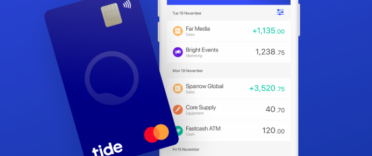 If you’re looking to grow your business, a common way to fund growth is to take out a business loan. A business loan is a type of loan that’s specifically intended to finance a business. We cover the basics in our article 'What is a business loan?'. In this article we explain how to apply for a business loan and explore the different types of business loans available in the UK.
If you’re looking to grow your business, a common way to fund growth is to take out a business loan. A business loan is a type of loan that’s specifically intended to finance a business. We cover the basics in our article 'What is a business loan?'. In this article we explain how to apply for a business loan and explore the different types of business loans available in the UK.
How to get a business loan
Here are the three key steps to take to get a business loan:
1.) Preparing for a business loan application
Before you go ahead and apply for a business loan, make sure you have carried out the following:
- Check your business and personal credit report - your credit report will be the first thing lenders look at. The stronger your credit report, the better loan rates you’ll be offered. If you're a sole trader then a lender will check your personal credit score whereas if your business is set up as a limited company, lenders will usually check your business credit score. We go into more detail in our article 'What is a business credit score?'.
- Sort out your finances - if you have any outstanding debts, try to repay these before applying for a loan. If you are owed money, try and make sure you receive this before applying as it demonstrates a strong cash flow.
- Check your bank accounts - your business bank accounts should be in order and filed recently.
- Have you got a business plan? Showing that you have a strong business plan will help your loan application and give lenders confidence.
- Plan how much you want to borrow and why - lenders will ask you why you need the money so make sure that you have a clear explanation. Is it to support business growth? Consolidate debts? Also, you should be clear on when you can afford to comfortably repay it by.
- Consider how long it takes to receive the business loan - think about when you need the money by and consider this when applying.
2.) Compare the best business loans
Before applying for a business loan, compare different lenders to ensure you get the best deal. Here are some of the things you should compare when looking at business loans:
- Interest rate
- Repayment options and terms
- Loan amount
- Whether the loan is secured or unsecured
Use a business loan comparison website to compare different business loan options. You should also speak to a financial adviser before applying to ensure it’s the right decision for your business.
3.) Complete your business loan application
Once you’ve chosen your lender and type of business loan, it’s time to apply. To process your application, lenders will require the following documents:
- Type of business - limited company, partnership or sole trader
- Business details - company number, business plan, registered company address and tax information
- Financial statements - tax returns, bank statements, credit card bills, balance sheets, list of business assets etc.
- Business owner proof - company director proof of address and IDs
Before agreeing to a business loan agreement make sure you read the small print and double-check all of the terms. You should also understand the risks of borrowing any money, you will need to repay the amount in full plus interest. If the loan is secured against your assets, you could risk having property repossessed if you are unable to pay.
What should I do if my business loan is declined?
The first step is to understand why you have been rejected by looking at your personal credit score if you are a sole trader and your business credit score if your business is a limited company. You should also immediately press pause on other business loan applications as multiple hard searches on your credit file will only damage your credit further.
The next step is to work on rebuilding your credit report to increase your chances of being accepted for a loan in the future. Here are some ways you can improve your credit score:
- Pay bills on time
- File your taxes regularly and on time
- Clear any unpaid debts and make sure you meet monthly repayments
Once you have waited a few months and rebuilt your credit rating, you can consider applying for a business loan again.
Am I eligible for a business loan?
Different lenders will have different eligibility criteria. We explore who can get a business loan in our article 'Who can get a business loan?'.
There are some typical criteria you’ll need to meet to apply for a business loan:
- You must be at least 18 years old
- You must pass personal/business credit checks to ensure you can afford to repay the loan
- You must have or plan to start a business
- You must have a clear business plan and the purpose of the loan
- You must have the right to live and work in the UK
You can also use this business loan calculator to check whether you’d would be able to afford the loan.
If you business is new or you are yet to get it going, read our articles 'What are business startup loans?' and 'How do small business loans work?'.
Can I get a business loan if I have been refused credit in the past?
If you have got bad credit or have been refused credit in the past, you can still usually get a business loan. However, you might find it harder to be approved, even if your business is set up as a limited company. If you’ve got a bad credit score, lenders might see it as a risk to lend money, meaning that they might charge high-interest rates to cover the added risk.
Unsecured business loans can still be an option if you have a guarantor which is a nominated individual or business that agrees to cover your repayments if you’re unable to.
We explore bad credit business loans in our article 'How to get a business loan with bad credit'.
What are the different types of business loans?
There are a variety of different business loans depending on how much you’re borrowing and why you’re are looking to borrow:
Secured business loan
A secured business loan is secured against another asset. For example if you are a sole trader the loan could be secured against your house so if you don’t meet the repayments, your house can be repossessed to pay off the loan. There is a guarantee that the lender can get their money back with secured loans, so the rates tend to be lower than on unsecured business loans.
Unsecured business loan
An unsecured business loan is where you borrow money without using assets as security. These loans might have higher interest rates than secured loans.
Term loans
Term loans are a very common form of business loan. This is a loan where you get the money and agree to repay plus a fixed interest rate over a set amount of time.
Short-term
Short-term business loans are a type of term loan that has a much shorter repayment schedule, anything from weeks to months. These loans tend to be for business emergencies or unexpected bills.
Long-term
Long-term business loans are the opposite of short-term. The repayment schedule is over a longer period of time, anything from 5 to 30 years in some cases. Long-term business loans are often for larger amounts of money and for planned expenditure.
SBA loans
An SBA loan is guaranteed by the Small Business Administration. SBA loans are offered by most lenders and offer businesses some assurance that the SBA will cover them if they fail to make repayments. The interest rates tend to be low and repayment terms long. However, not all businesses qualify for SBA loans and the application process is extremely lengthy.
Invoice finance
Invoice finance is different from standard business loans. Instead of a cash sum, lenders will buy outstanding invoices from your business for a fee. This means you receive money owed by customers more quickly, therefore improving your cash flow.




